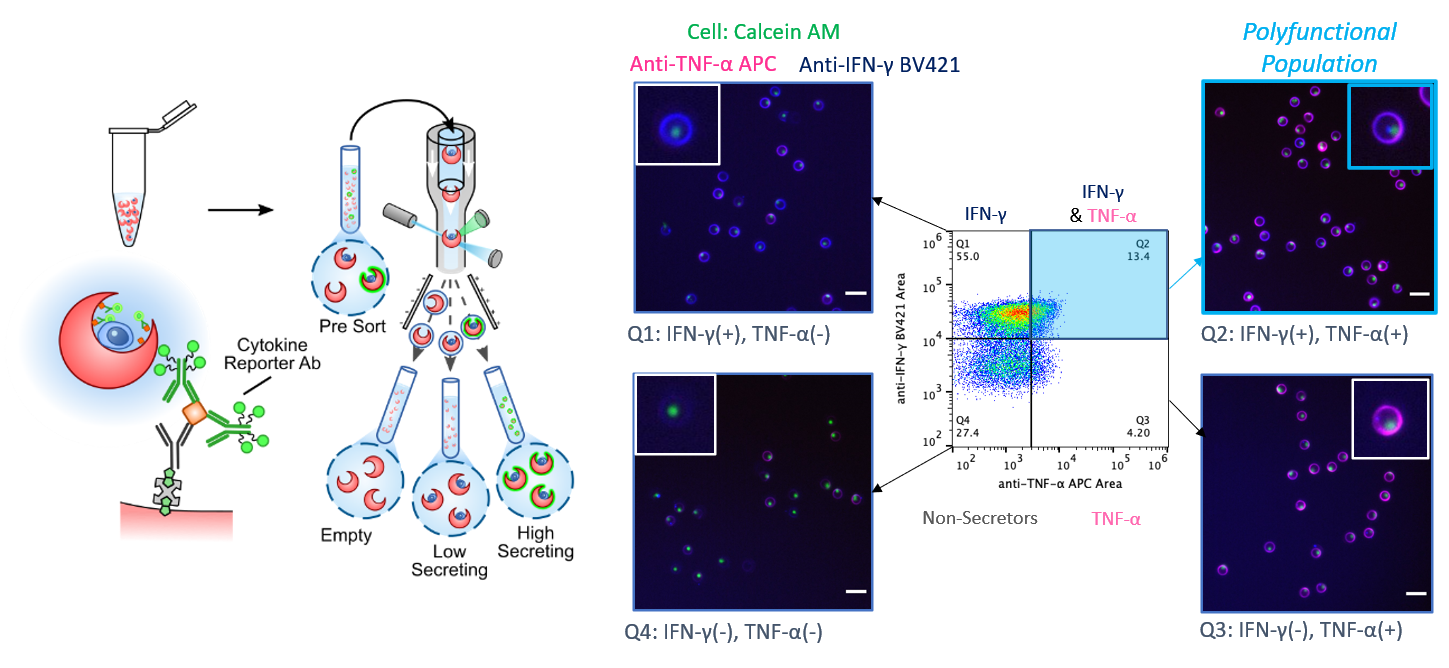Sorting Single T Cells Based on Secreted Cytokines and Surface Markers Using Hydrogel Nanovials
Doyeon Koo, Robert Dimatteo, Sohyung Lee, Joseph de Rutte, Dino Di Carlo
bioRxiv, April 2022
Abstract
Immune cell function is intrinsically linked to secreted factors which enable cells to communicate with neighboring or distant cells to coordinate a response. The ability to secrete cytokines also can help define the population of cells with therapeutic potential in emerging cell therapies, such as chimeric antigen receptor (CAR)-T cell therapies. Polyfunctional cells that can secrete more than one cytokine have been found to play an outsized role in therapeutic efficacy. While there are a variety of techniques to analyze cellular secretions from individual polyfunctional cells, there are no widely-available approaches to sort viable cells based on this phenotype. Here, we apply lab on a particle technology to the analysis and sorting of T cells based on a combination of secreted factors, interferon gamma (IFN-γ), tumor necrosis factor alpha (TNF-α) and interleukin 2 (IL-2) and surface markers (CD8+ and CD4+). Cells are selectively loaded into the antibody-functionalized cavity of micro-hydrogel particles, called nanovials, where secreted cytokines are captured and fluorescently stained. By leveraging standard fluorescence activated cell sorters and using fluorescence pulse area/height information we can distinguish between fluorescence signals on the nanovial cavities and on cells, and are able to process greater than 1 million nanovials in one hour of sorting. The frequency of multi-cytokine secreting cells was correlated with surface marker expression, and biased towards CD4+ T cells. CD8+ cells that secreted more than one cytokine, were biased towards IFN-γ and TNF-α with fewer CD8+ cells secreting IL-2. The majority of cells with a polyfunctional phenotype that were sorted remained viable and regrew following sorting. This nanovial cytokine secretion assay can be applied to sort antigen-specific T cells or CAR-T cells based on their functional engagement with cognate antigens or peptide-major histocompatibility complexs (MHCs), enabling discovery of functional CARs or T cell receptors and deeper investigation into the molecular underpinnings of single T cell function.
Topics
Cytokine Profiling, Technology
Cell Types
Human T Cells
Flow Cytometers
SONY SH800
Related Products
EZ-35-A: EZM Nanovials, Biotinylated, 35 µm

